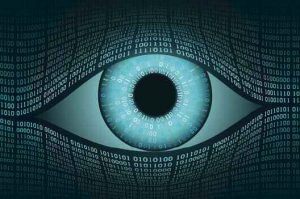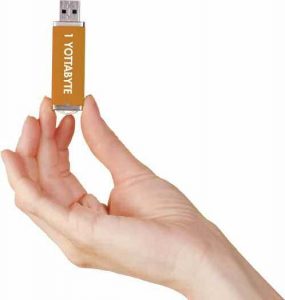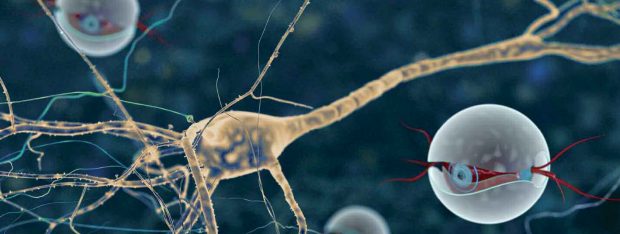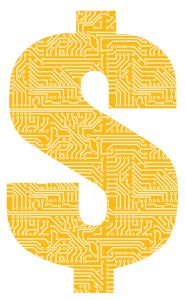 When Professor of Media Studies Mark Andrejevic started writing about what he calls “the surveillance economy” back in 2001, “I was considered to be a very angry, cranky, dystopian naysayer,” he recalls. “But recently—and especially in this past year—it’s become a commonplace that we live in a surveillance society in which our information is leveraged for profit. And so, it’s a weird feeling of vindication and, also, helplessness.”
When Professor of Media Studies Mark Andrejevic started writing about what he calls “the surveillance economy” back in 2001, “I was considered to be a very angry, cranky, dystopian naysayer,” he recalls. “But recently—and especially in this past year—it’s become a commonplace that we live in a surveillance society in which our information is leveraged for profit. And so, it’s a weird feeling of vindication and, also, helplessness.”
Vindication because his dire warnings have clearly come true as companies and institutions comb our interactive lives to build bigger and more intrusive profiles.
Helplessness because he thinks it may already be too late to do anything about it.
That’s partly because sites like Amazon and Facebook have become a way of life, and partly because new technologies are creating bold new ways for information to be gathered, marketed and leveraged—not just to anticipate what we might buy, but to parse how we think, what our vulnerabilities are and how they can be exploited.
One concern, he says, is the proliferation of “smart” devices—from speakers that answer our queries and play our favorite music to appliances that know how we like our toast or coffee. “These are very convenient devices,” he admits. “At the same time, they are a new frontier in data and information collection. There are already patents floating around for how to use the information that can be picked up through smart speakers in the home in order to anticipate consumer desires and craft marketing campaigns. And as those interfaces become increasingly interactive, they generate new forms of monitoring and surveillance. Do we really want our washing machines and microwaves keeping track of the rhythms of our daily lives?”
Another assault on our privacy, he says, involves advances in such technologies as facial recognition, gait recognition and license-plate reading. “We’ve always thought of public space as being associated with the anonymity of the crowd,” he says, “but that’s fast eroding. You’re no longer moving in a space where your identity is largely unknown and the traces of your activities ephemeral. Soon every action you take walking down the street will be linked to your identity.”
How might that look? Consider the times you’ve searched for something on a website, then found ads for it everywhere you went online. Now imagine that happening as you pass signs in a mall or even billboards on the highway.
One device that Andrejevic worries about in particular is the fitness tracker, which is constantly gathering information about your health and storing it online. Sounds great, until you think about that information in the hands of your insurance company. “As Obamacare gets dismantled, which seems to be the case, insurers will be able to discriminate based on pre-existing conditions again,” he says. “And, you know, this type of information is very useful for companies who want to do that type of screening.”
Meanwhile, in the world of politics, the use of voter profiles to manipulate the vote is the wave of the future. “Now campaigns know so much about voters that they can custom-tailor messaging, both to rally supporters and to attempt to suppress the participation of opponents’ supporters,” Andrejevic notes. “I don’t believe that Cambridge Analytica had anywhere near the influence they claim for themselves, but the political model they embraced will continue to get more sophisticated.”
To date, Andrejevic says, many of his dystopic predictions have come true, which makes him deeply pessimistic about the future. “But working with the students here actually makes me quite optimistic because our students are wonderful,” he says. “If there’s any hope, it’s the students. I have those moments when I’m thinking, ‘Can you guys take over now? Because we need you.’”
Previous (Artificial Intelligence)
Next (Social Media)
 Science museums are not just science lessons for kids any more.
Science museums are not just science lessons for kids any more. As we near the 50th anniversary of the first moonwalk, Colleen Hartman ’77 believes the next chapter in human space exploration is not far away. “When I talk to high-school and younger groups, I always tell them that I’ll be alive when the first human puts her foot down on Mars, and they always laugh,” she says.
As we near the 50th anniversary of the first moonwalk, Colleen Hartman ’77 believes the next chapter in human space exploration is not far away. “When I talk to high-school and younger groups, I always tell them that I’ll be alive when the first human puts her foot down on Mars, and they always laugh,” she says. When he’s traveling, Eric Oldrin ‘95 likes to make his kids laugh by connecting with them on Facebook Messenger with bunny ears and a cute little bunny mask on his nose. Of course, Facebook’s head of emerging platforms doesn’t really put on a bunny mask—it all happens in cyberspace, using augmented reality (AR).
When he’s traveling, Eric Oldrin ‘95 likes to make his kids laugh by connecting with them on Facebook Messenger with bunny ears and a cute little bunny mask on his nose. Of course, Facebook’s head of emerging platforms doesn’t really put on a bunny mask—it all happens in cyberspace, using augmented reality (AR). When Professor of Media Studies Mark Andrejevic started writing about what he calls “the surveillance economy” back in 2001, “I was considered to be a very angry, cranky, dystopian naysayer,” he recalls. “But recently—and especially in this past year—it’s become a commonplace that we live in a surveillance society in which our information is leveraged for profit. And so, it’s a weird feeling of vindication and, also, helplessness.”
When Professor of Media Studies Mark Andrejevic started writing about what he calls “the surveillance economy” back in 2001, “I was considered to be a very angry, cranky, dystopian naysayer,” he recalls. “But recently—and especially in this past year—it’s become a commonplace that we live in a surveillance society in which our information is leveraged for profit. And so, it’s a weird feeling of vindication and, also, helplessness.” Imagine a future in which robots screen job candidates, universities introduce artificially intelligent tutors into classrooms and news services use a combination of social media and artificial intelligence (AI) to roll out breaking news.
Imagine a future in which robots screen job candidates, universities introduce artificially intelligent tutors into classrooms and news services use a combination of social media and artificial intelligence (AI) to roll out breaking news. At the dawn of the digital age, storage was measured in kilobytes. Over the years, we’ve gotten used to megabytes, gigabytes and terabytes. But have you heard of petabytes, exabytes, zettabytes and yottabytes?
At the dawn of the digital age, storage was measured in kilobytes. Over the years, we’ve gotten used to megabytes, gigabytes and terabytes. But have you heard of petabytes, exabytes, zettabytes and yottabytes? Two words: Killer nanobots.
Two words: Killer nanobots. Artificial Intelligence? Think again.
Artificial Intelligence? Think again. The weathered sign on the old fruit stand at what remains of the last orange grove in Rialto, Calif., reads “Adams Acres” and “Since 1907.” Owner John Adams ’66, a third-generation fruit farmer with a passion for the perfect sweetness of a peach, waves his hand at a plum tree that is in full leaf but bears no fruit.
The weathered sign on the old fruit stand at what remains of the last orange grove in Rialto, Calif., reads “Adams Acres” and “Since 1907.” Owner John Adams ’66, a third-generation fruit farmer with a passion for the perfect sweetness of a peach, waves his hand at a plum tree that is in full leaf but bears no fruit. When we think about the future of solar energy, we usually think about new generations of solar cells that are more efficient or more affordable or longer-lasting—or some happy combination of the three. Lots of scientists and engineers are at work on that side of the equation, including Professor of Physics David Tanenbaum, whose current research involves the development of perovskite and organic polymer-based solar cells that should be cheaper to produce than the silicon variety.
When we think about the future of solar energy, we usually think about new generations of solar cells that are more efficient or more affordable or longer-lasting—or some happy combination of the three. Lots of scientists and engineers are at work on that side of the equation, including Professor of Physics David Tanenbaum, whose current research involves the development of perovskite and organic polymer-based solar cells that should be cheaper to produce than the silicon variety.